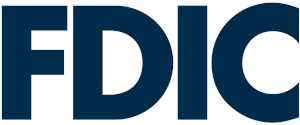Farms don’t function without everyone pitching in.
Elizabeth Wisor is a seventh-generation dairy farmer who grew up on Knob Farm in Grampian, Pennsylvania. She remembers helping out on the farm as a child.
“Every night after school, I’d have to come over and feed the calves, help get the work started, and bring the cows in,” she said.
Now, she and her husband, Adam, are raising four children, who each contribute to the farm in their own way. While her youngest son is barely old enough to sneak chocolate milk from the refrigerator, her three oldest children help feed the cows and calves after school. To Elizabeth, the family aspect of farming is the most important thing.
“To see them stepping into the roles that I used to do, that’s what I like,” she said.
Until June of 2022, Knob Farm was a commercial dairy farm. Elizabeth’s father, Jeff Wriglesworth, 64, had no intention of retiring for at least 10 years.
“We were milking 75 cows and farming almost 300 acres,” said Jeff. “Then, I got hurt.”
Without a succession plan in place, the demands of the farm quickly became too much.
“Within two days, we decided there was no way that I could continue managing the extra workload,” said Elizabeth.
At that point, the family turned to Reliance Bank for help. Through the bank’s network, Senior Vice President and Commercial Banker Valerie Detwiler was able to locate a farm in Morrison’s Cove that was looking to purchase cows.
After decades of building up their genetics, the family had no choice but to sell off their cattle.
“For such a bad experience, it couldn’t have been any easier for us,” said Elizabeth.
“We sold the cows without really a plan as to what we were going to do next,” said Jeff.
What they did know was that they wanted to continue farming.
“We needed to figure out a game plan because my kids love this, and I didn’t want it to end,” Elizabeth said.
They started researching and visiting “micro dairies.” A micro dairy allows farmers to milk a small number of cows and process the milk themselves.
“This is kind of like a popular trend,” said Elizabeth.
“We decided that was the fit for us,” said Jeff.
The family was able to purchase the necessary equipment to start processing and bottling their own milk in January of 2023. By March, The Creamery at Knob Farm was born.
The Creamery at Knob Farm sells both pasteurized and raw milk. When they ran a commercial dairy farm, they didn’t process or bottle the milk themselves, and their milk wasn’t sold locally. Despite growing up on a dairy farm, Elizabeth didn’t drink raw milk until she started producing it at her new micro dairy. Now, it’s all she drinks.
“Pasteurization takes 5 hours, but the raw, we can milk the cow, cool the milk, bottle it, and it’s ready to go.”
Jeff says there was a stigma attached to consuming raw milk for a long time.
“People didn’t want to use that because they were afraid of getting sick from it,” he said.
However, raw milk has become increasingly popular as more consumers place higher importance on buying locally-produced products and understanding where their food comes from.
“When my grandfather sold in town, everything was raw. They didn’t pasteurize. They cooled the milk in the spring house,” said Jeff.
Now, traditions of the farm’s past are coming back into practice.
“We’ve had so many people contact us, wanting to sell our milk since we started the creamery,” said Elizabeth. “It’s not just local people. People are traveling a distance to get raw milk because it’s not available in their area.”
As successful as this new venture has been for the family, they don’t plan to expand anytime soon.
“What we have right now is sustainable, and that was the goal all along,” said Elizabeth.
